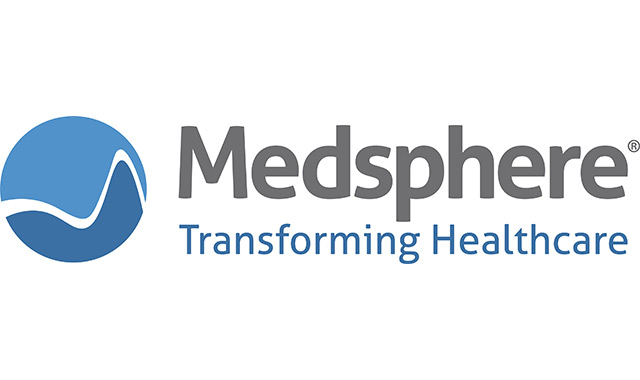Who is accountable for the actions of Adam Lanza, the troubled young man who in December 2012 killed 26 people in Newtown, Connecticut?
He is, of course. Some might also hold the mother he lived with accountable to some extent, but both are gone now and neither was able to keep the tragedy from occurring.
So who else in Adam Lanza’s life might have noticed disturbing patterns in his behavior and stepped in to offer help and guidance?
That’s the question Senator Chris Murphy, a Connecticut Democrat, would like to answer.
“This was a young man whose primary care doctor had no notes in his file on his behavioral health issues for a period of years because somebody else was dealing with that,” Murphy said during a recent roundtable discussion with Connecticut mental health professionals. “Nobody was really sure whether the school system was in charge, whether his primary care physician was in charge, whether the community mental health system was in charge, and we’ve got to create a system whereby we uncompartmentalize behavioral healthcare and we recognize some clear lines of accountability.”
To that end, Murphy is working with Senator Bill Cassidy, a Louisiana Republican and medical doctor, to craft a bill that will overhaul the nation’s mental health system. Among the stated goals of the bill would be to close gaps by uniting physical and mental health care under one roof.
“In order to keep somebody healthy, you might have to treat their brain and the rest of their body together,”Murphy told the CT Post. “That means that when you walk into a community health center, and you present with a behavioral health issue, you shouldn’t be sent offsite.”
The senator is only the most recent Murphy in Congress to make improved mental health care a primary objective. Representative Tim Murphy, a Pennsylvania Republican and clinical psychologist, last year introduced the Helping Families in Mental Health Crisis Act. Representative Murphy recently re-introducedHelping Families in the House, and Senator Murphy plans to write many aspects of the Helping Families bill into his legislation, expected later this summer or early fall.
Certainly, accountability is the goal of Accountable Care Organizations (ACOs). It’s right there in the name, after all. Would a group of care givers with different areas of expertise who all had access to comprehensive information on Adam Lanza been able to successfully intervene? Would someone have been accountable for changing the trajectory?
Maybe. Maybe not. No guarantees.
This much is certain, however—it is impossible to act on information you don’t have.
And that’s the rub, really. The information has to be there. It has to be accurate. And someone has to take action. This definition of accountability, which healthcare currently grapples with and must find a way to realize, is not possible without technology.
And that accountability exists among all players. We put most of the accountability on physicians, as they do on themselves, often irrationally expecting miracles. But how can a doctor fix a lifetime of bad health decisions when we’re unwilling or unable to be accountable for ourselves?
And what would motivate patients to get more involved in their own health? The patient portal, a Meaningful Use requirement and the essential component in “patient centric” electronic health records (EHRs), is the fix we’re putting faith in, but none are all that good yet and patients seem largely ambivalent as a result.
Still, it’s clear that data sharing is key to accountability, and we’re not yet doing enough of it.
In 2012, according to a Health Affairs study, only 2 percent of behavioral health hospitals had a comprehensive EHR. In a 2012 Behavioral Health Roundtable organized by the Office of the National Coordinator (ONC), participants noted the lack of federal financial incentives available to mental health hospitals for IT adoption, among other concerns.
“Aside from the relative absence of EHR financial incentives for behavioral health providers, participants voiced concerns that smaller behavioral health providers may be overburdened by adopting these systems or priced out of the EHR market; these smaller providers often lack the resources to implement and maintain an EHR system.”
Interoperable health IT systems need to be everywhere in healthcare, including mental health hospitals and clinics. It’s not that technology is a panacea for all that ails the American healthcare system—far from it, actually, as policy and finances probably have greater impact. Still, it is impossible to make sound decisions, to intervene positively at all, without relevant data. Health IT systems are not sufficient, but they are essential.
So, is there a need for more accountability in American healthcare? Of course. All the way up the chain. Will it stop the next Adam Lanza? We can only hope.
Senator Murphy and Representative Murphy believe the federal government can help with accountability by extending health IT incentives to all care providers and making other systemic changes to focus more on treating the whole patient
Patients can be accountable for their own health and lives by knowing more about themselves and working to change the unhealthy bits.
I could write a great deal about how health IT vendors are not accountable for their actions within healthcare when charging multi-millions for systems with no proven return on investment (think sunk costs), but that’s a subject for another day. What we can do is work to develop systems that are user friendly, patient centric and interoperable. Indeed, that’s probably the least we can do.






























